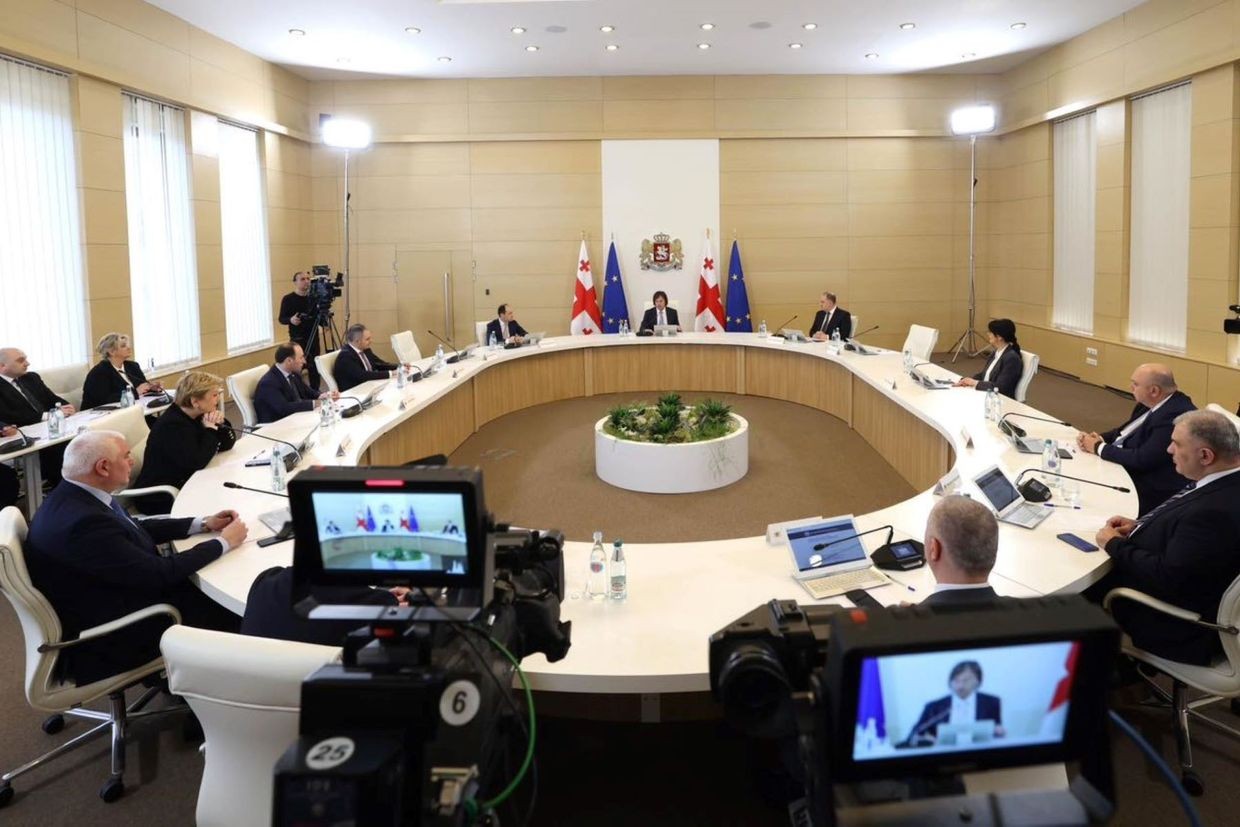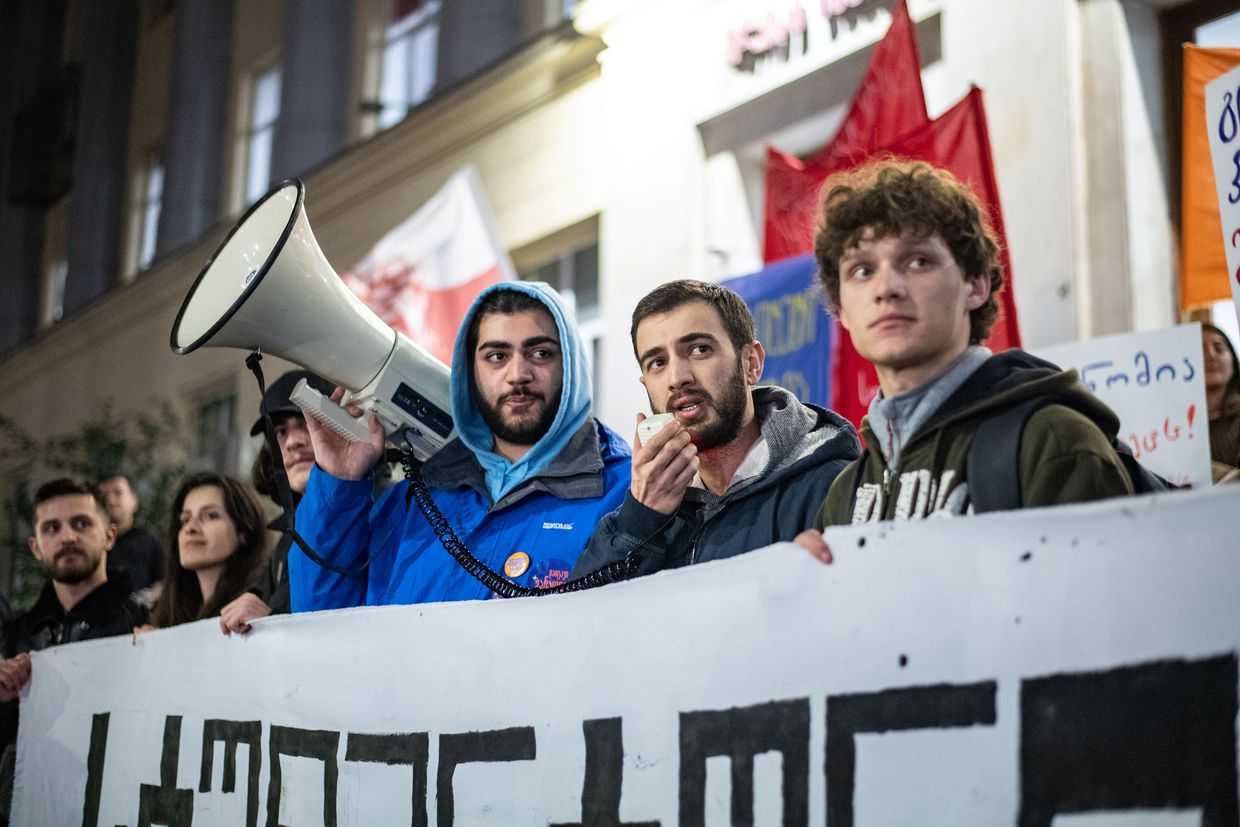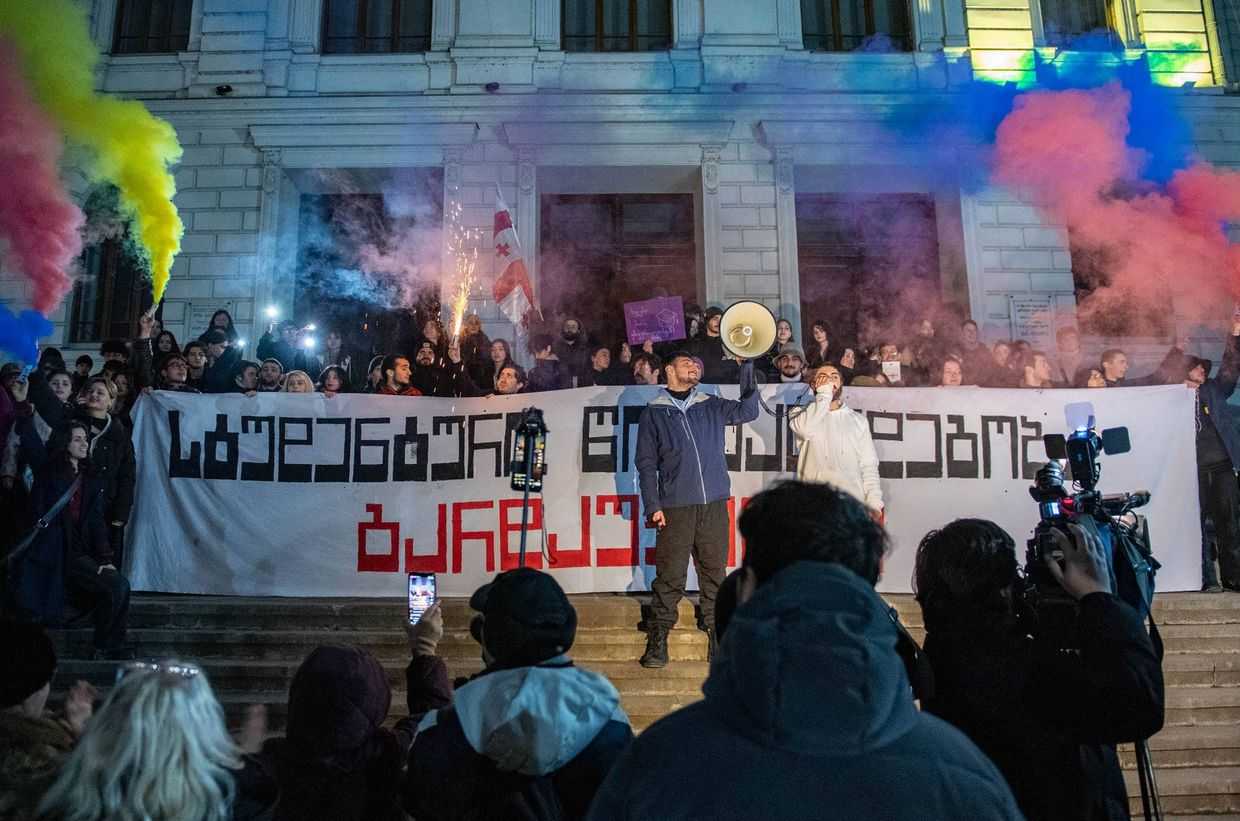
Georgian Prime Minister Irakli Kobakhidze has claimed that Georgian Dream’s promise to develop the country’s democratic system has been largely fulfilled, citing the absence of ‘the collective National Movement’ and other ‘radical’ forces in the Georgian Parliament.
At a government session on Monday, Kobakhidze said that ‘the radical part of the opposition is in a difficult situation’ and, according to him, ‘their plans are not destined to be implemented’.
‘For the first time in the past 20 years, the collective National Movement is not represented in the Georgian Parliament, which is very important for the smooth development of the country’s democratic system — we made this promise to the Georgian society, the promise has been largely fulfilled, and we will continue to fulfill it!’ he said.
Georgian Dream and their satellites refer to all major pro-Western opposition groups in Georgia as the ‘collective National Movement’ or the ‘National Movement’, a reference to the former ruling party, the United National Movement (UNM).
In the run-up to the elections, Georgian Dream appealed to its electorate to help it secure a constitutional majority in the elections, vowing to outlaw their political rivals, ban ‘pseudo-liberal ideology’, and to ‘peacefully reintegrate’ Abkhazia and South Ossetia.
The party cited the possibility of declaring the ‘collective National Movement’ to be unconstitutional as one of the reasons for the need to reach a constitutional majority. Nonetheless, Georgian Dream failed to obtain a constitutional majority in the October elections.

Parliament virtually no longer has any opposition representation except for Giorgi Gakharia’s For Georgia party’s 12 MPs, who are boycotting all sessions. Gakharia is a former prime minister who previously served under Georgian Dream.
In the beginning of February, the parliamentary majority expelled 49 opposition MPs — who were also boycotting all sessions — from parliament. The expelled MPs belonged to the Unity — National Movement, Strong Georgia, and Coalition for Change groups.
‘Georgia’s democratic system will develop much faster without radicalism. Under such conditions, our democratic progress and development in all directions will be much less hindered’, Kobakhidze said on Monday.
The current political crisis comes on the heels of October’s parliamentary elections, which according to official results, gave Georgian Dream a large majority, with 54% of the vote.

Georgians throughout the country have been protesting for more than 80 days against the government’s policies and the announcement the ruling party would halt Georgia’s EU accession process.
Human rights activists in Georgia have suggested that more than 400 people could have been detained during pro-EU demonstrations against the government in November and December — a large number of whom claim that they were subjected to physical or psychological abuse by law enforcement officers.
In 2022, several members of Georgian Dream announced their departure from the ruling party citing the need for a more ‘open discussion’ about Georgia’s Western partners. The group was named People’s Power, and was largely viewed as a satellite group of Georgian Dream.
People’s Power has continued to support Georgian Dream and glorify its billionaire founder and honorary chair Bidzina Ivanishvili. The MPs also ran on the same electoral list as Georgian Dream in the 2024 elections.
On 5 February, with the absence of any opposition MPs in parliament, three members of Georgian Dream, including Ilia Inzhia, Varlam Liparteliani, and Nika Elisashveli, resigned from the ruling party to create a ‘healthy opposition’ faction within parliament.











